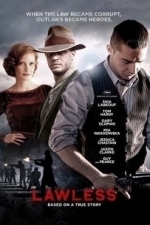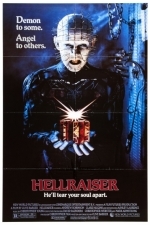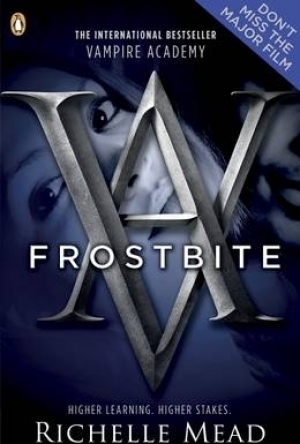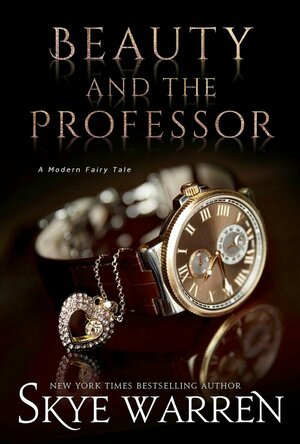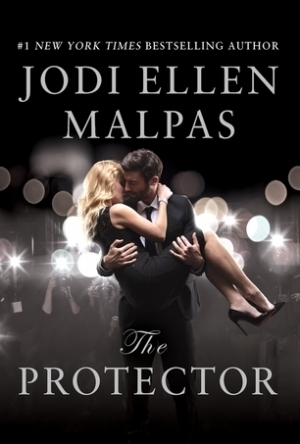Search
Gareth von Kallenbach (980 KP) rated Lawless (2012) in Movies
Aug 7, 2019
Prohibition means profit to the bootlegging Bondurant brothers, until a new deputy appears wanting a cut of the action. When the family, led by oldest brother Forrest (Tom Hardy), refuses, it ignites a pattern of violent lawless retribution between the corrupt local authorities and the moonshine-selling brothers.
While adapted from the pages of a successful book, the plot of “Lawless” portrays a familiar story. A young romance slated against the challenges of a family who is literally and metaphorically, sticking to their guns. The brilliance of the film exists in the vivid set work, understated characterization, and graphic portrayals of unbridled yet historically accurate punishments.
There are bullet holes everywhere in this wild land of violence. The depictions of torture, while not the most graphically intensive in cinema, are characterized by psychological malice. The result is a film that manages to entirely pull the viewer into a different, much less civilized, time.
Led and narrated by seasoned actor, Shia LaBeouf, as the youngest brother, Jack Bondurant, the role is hardly a challenge. Yet his performances only stands out when supported by other cast members, such as the gangster Floyd Banner, played by Gary Oldman. And while LaBeouf’s performance is not a great as it could be, it shines next to his lackluster costar, Mia Wasikowska as Bertha Minnix the forbidden preacher’s daughter and object of young Jack’s eye.
The best performance in the film is not the lead, but that of his brother Forrest who dispenses well-timed wisdom or humor even in direst situations. Further helping in the films success are the supporting characters; the third Bondurant brother, Howard (Jason Clarke), mechanically gifted family friend, Cricket Pate (Dane DeHaan), and city wise beauty Maggie Beauford (Jessica Chastain).
While not as impressive as expected, the slow but steady story and complex visceral nature of “Lawless”, make it a film that is worth the price of a ticket, for anyone who can make it through the squeamish bits.
While adapted from the pages of a successful book, the plot of “Lawless” portrays a familiar story. A young romance slated against the challenges of a family who is literally and metaphorically, sticking to their guns. The brilliance of the film exists in the vivid set work, understated characterization, and graphic portrayals of unbridled yet historically accurate punishments.
There are bullet holes everywhere in this wild land of violence. The depictions of torture, while not the most graphically intensive in cinema, are characterized by psychological malice. The result is a film that manages to entirely pull the viewer into a different, much less civilized, time.
Led and narrated by seasoned actor, Shia LaBeouf, as the youngest brother, Jack Bondurant, the role is hardly a challenge. Yet his performances only stands out when supported by other cast members, such as the gangster Floyd Banner, played by Gary Oldman. And while LaBeouf’s performance is not a great as it could be, it shines next to his lackluster costar, Mia Wasikowska as Bertha Minnix the forbidden preacher’s daughter and object of young Jack’s eye.
The best performance in the film is not the lead, but that of his brother Forrest who dispenses well-timed wisdom or humor even in direst situations. Further helping in the films success are the supporting characters; the third Bondurant brother, Howard (Jason Clarke), mechanically gifted family friend, Cricket Pate (Dane DeHaan), and city wise beauty Maggie Beauford (Jessica Chastain).
While not as impressive as expected, the slow but steady story and complex visceral nature of “Lawless”, make it a film that is worth the price of a ticket, for anyone who can make it through the squeamish bits.
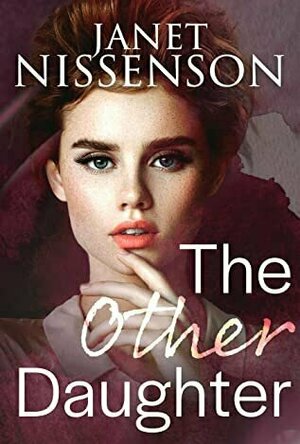
The Other Daughter
Book
Twenty-one year-old Scarlett Strohman has had to walk a difficult path thus far in her young life....
Contemporary Romance
LeftSideCut (3776 KP) rated Hellraiser (1987) in Movies
Nov 14, 2021
All these years later, and Hellraiser is still a treat. I've always had respect for Clive Barker's directorial debut. It came out in a decade where the genre had become more schlocky and less serious with each passing year, and dared to go for the jugular with its straight shooting, no nonsense brand of horror.
It has an engaging plot, focusing primarily on a forbidden love between Julia, and her husband's brother Frank. When Frank is quite literally torn apart after messing with an ancient puzzle box, it quickly becomes apparent that he can return to the land of the living through blood sacrifice, resulting in Julia luring unsuspecting victims to their doom in order to be with Frank once again. It's a twisted love story, effectively making Hellraiser a romance-horror, centering around a toxic relationship. The cast performances are varied for sure, but of course Clare Higgins is a stand out. Her portrayal of Julia is sympathetic as she is quite clearly besotted with and somewhat scared of Frank, whilst also managing to be a confident and calculating villain.
Then there is the iconic Pinhead, one of several cenobites that are summoned when the puzzle box is completed, and a horror antagonist that stands shoulder to shoulder with the likes of Michael Myers and Freddy Krueger. His presence here is effective in the way that it's seldom. When he does appear, Doug Bradley delivers every line with terrifying conviction, with some hugely memorable dialogue.
The practical effects on display are fantastic as well. Frank's ressurection scene in particular is striking, and one of the finest examples of practical horror effects out there. The cenobites themselves boast some memorable designs, and looks suitably unsettling. It also has a haunting and beautiful music score, courtesy of Christopher Young, that really ties everything together nicely.
Hellraiser is an all timer. A film that deserves its place in the horror hall of fame without question.
It has an engaging plot, focusing primarily on a forbidden love between Julia, and her husband's brother Frank. When Frank is quite literally torn apart after messing with an ancient puzzle box, it quickly becomes apparent that he can return to the land of the living through blood sacrifice, resulting in Julia luring unsuspecting victims to their doom in order to be with Frank once again. It's a twisted love story, effectively making Hellraiser a romance-horror, centering around a toxic relationship. The cast performances are varied for sure, but of course Clare Higgins is a stand out. Her portrayal of Julia is sympathetic as she is quite clearly besotted with and somewhat scared of Frank, whilst also managing to be a confident and calculating villain.
Then there is the iconic Pinhead, one of several cenobites that are summoned when the puzzle box is completed, and a horror antagonist that stands shoulder to shoulder with the likes of Michael Myers and Freddy Krueger. His presence here is effective in the way that it's seldom. When he does appear, Doug Bradley delivers every line with terrifying conviction, with some hugely memorable dialogue.
The practical effects on display are fantastic as well. Frank's ressurection scene in particular is striking, and one of the finest examples of practical horror effects out there. The cenobites themselves boast some memorable designs, and looks suitably unsettling. It also has a haunting and beautiful music score, courtesy of Christopher Young, that really ties everything together nicely.
Hellraiser is an all timer. A film that deserves its place in the horror hall of fame without question.
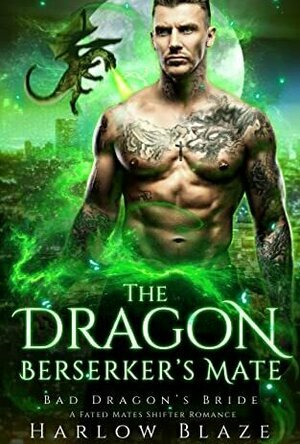
The Dragon Berserker's Mate (Bad Dragon's Bride, #2)
Book
The big bad dragon doesn’t play nice, even with a little ray of sunshine. Guarding her, easy....
Paranormal Romance Dragons Series Standalone

Requiem (Tales of the Five Realms #1)
Book
In a world where light and shade battle for hearts and minds, young rebel, Hagar, earns a...
Paranormal Romance
Heather Cranmer (2721 KP) rated We Are the Goldens in Books
Jun 7, 2018
(This review can be found on my blog <a href="http://themisadventuresofatwentysomething.blogspot.com/">The (Mis)Adventures of a Twenty-Something Year Old Girl</a>).
There was something about this book that intrigued me. Maybe it was the forbidden romance between a student and her teacher. I decided to give this book a try. Although it wasn't as great as I thought it would be, it was still an alright read.
I love the title, and I feel that it fits in really well with the book. These two sisters have always had each other's back and have done nearly everything together.
The cover is okay. I think it looks a bit too cavemanish though instead of two beautiful girls as what is described in the book. Maybe if both girls were looking up and the lighting was different, the cover photo wouldn't look like I was looking at two cavemen.
I enjoyed the world building. We learn about the world through Nell's letters to her sister Layla. (At least it sounded like she was writing a letter(s) to her sister. The author made it easy to understand Nell's and Layla's relationship from the beginning through her fantastic prose.
I thought the pacing held up rather well. There were times when I thought I'd be able to put the book down so I could go to bed or do something else, but I'd always end up reading a few more chapters. It thoroughly held my attention. Plus, I enjoyed the back story leading up to everything immensely.
The plot of the whole teacher-student relationship has been done before. However, Reinhardt makes her story interesting and unlike the other stories. I liked the close relationship that Nell and Layla used to have before Layla started dating her teacher. I was saddened to see it start to unravel over a forbidden romance. There's no plot twists that I read about, but that doesn't hurt the book any. The only thing that annoyed me was the ending. I would've liked to know a bit more such as what happened to Mr. Barr and Layla. That's all I'm saying because I don't want to give away anything that could be deemed as a spoiler.
Nell was instantly likable. There was a certain innocence and vulnerability with her. It was easy to empathize with what she was going through, and I felt like her struggle with keeping her sister's secret was my own as well. I also thought Layla was a fantastic character as well. We get to know her through Nell's letters, and we learn that she too is also very vulnerable and just wants to find her one true love. I loved the character of Felix except that I had a hard time believing that he was into girls as it said in the book. I found his speech to be very effeminate. He reminded me of Damian from the film Mean Girls. Every time Felix was in a scene, I always was picturing Damian. We don't really learn too much about Mr. Barr (the teacher in a relationship with Layla) other that his students all think he's the coolest teacher and the best looking. We also learn that there's rumors about him being with other students previously.
The dialogue flows very smoothly and is never awkward. The speech fits my perception of how teenagers speak. It suits a young adult book. There is some swearing and some sexual references although none that are graphic. There is no violence in this book.
Overall, We Are the Goldens by Dana Reinhardt is an enjoyable read save for the ending. The characters are well written as is the whole entire book. This book deals with subject matter that happens at every school.
I'd recommend this book to those aged 15+ who enjoy realistic fiction and characters that are easy to relate to.
<b>I'd give We Are the Goldens by Dana Reinhardt a 3.5 out of 5.</b>
(I was provided with a free ebook of this title from the publisher through NetGalley in exchange for an honest and unbiased review).
There was something about this book that intrigued me. Maybe it was the forbidden romance between a student and her teacher. I decided to give this book a try. Although it wasn't as great as I thought it would be, it was still an alright read.
I love the title, and I feel that it fits in really well with the book. These two sisters have always had each other's back and have done nearly everything together.
The cover is okay. I think it looks a bit too cavemanish though instead of two beautiful girls as what is described in the book. Maybe if both girls were looking up and the lighting was different, the cover photo wouldn't look like I was looking at two cavemen.
I enjoyed the world building. We learn about the world through Nell's letters to her sister Layla. (At least it sounded like she was writing a letter(s) to her sister. The author made it easy to understand Nell's and Layla's relationship from the beginning through her fantastic prose.
I thought the pacing held up rather well. There were times when I thought I'd be able to put the book down so I could go to bed or do something else, but I'd always end up reading a few more chapters. It thoroughly held my attention. Plus, I enjoyed the back story leading up to everything immensely.
The plot of the whole teacher-student relationship has been done before. However, Reinhardt makes her story interesting and unlike the other stories. I liked the close relationship that Nell and Layla used to have before Layla started dating her teacher. I was saddened to see it start to unravel over a forbidden romance. There's no plot twists that I read about, but that doesn't hurt the book any. The only thing that annoyed me was the ending. I would've liked to know a bit more such as what happened to Mr. Barr and Layla. That's all I'm saying because I don't want to give away anything that could be deemed as a spoiler.
Nell was instantly likable. There was a certain innocence and vulnerability with her. It was easy to empathize with what she was going through, and I felt like her struggle with keeping her sister's secret was my own as well. I also thought Layla was a fantastic character as well. We get to know her through Nell's letters, and we learn that she too is also very vulnerable and just wants to find her one true love. I loved the character of Felix except that I had a hard time believing that he was into girls as it said in the book. I found his speech to be very effeminate. He reminded me of Damian from the film Mean Girls. Every time Felix was in a scene, I always was picturing Damian. We don't really learn too much about Mr. Barr (the teacher in a relationship with Layla) other that his students all think he's the coolest teacher and the best looking. We also learn that there's rumors about him being with other students previously.
The dialogue flows very smoothly and is never awkward. The speech fits my perception of how teenagers speak. It suits a young adult book. There is some swearing and some sexual references although none that are graphic. There is no violence in this book.
Overall, We Are the Goldens by Dana Reinhardt is an enjoyable read save for the ending. The characters are well written as is the whole entire book. This book deals with subject matter that happens at every school.
I'd recommend this book to those aged 15+ who enjoy realistic fiction and characters that are easy to relate to.
<b>I'd give We Are the Goldens by Dana Reinhardt a 3.5 out of 5.</b>
(I was provided with a free ebook of this title from the publisher through NetGalley in exchange for an honest and unbiased review).
Rachel King (13 KP) rated Frostbite in Books
Feb 11, 2019
I enjoyed this book nearly as much as the first one in the series, but I'm getting really frustrated with the lack of progress in Dimitri and Rose's forbidden romance. Instead, it seems to have taken a backseat to other plotlines, such as the turmoil between Rose and her mother and the political climate that Lissa is moving into. I find Rose's mother, Janine, intriguing in that she seems to be what Rose could become if Rose chooses duty over love. I sure wish that Janine would open up more since there seems to be a lot of great plot material there that was not exploited very much - Rose's black eye being a perfect example. The politics that Lissa is dealing with appear to be moving in the direction that I guessed might happen when I read the first book, which is an equalizing between the Moroi and Dhampir classes of their society, especially when it comes to dealing with the Strigoi.
Despite how Rose views Adrian, I actually rather like him. There is always something attractive about the flirty-jokester that entices women - afterall I don't know a woman who doesn't like to laugh. It's obvious that he really likes Rose and I find myself feeling sorry for him since Rose is definitely taken, even if not in the literal sense yet. Mason really ends up in the worst position, though, even if I don't include what happens to him in the end. Rose all but lies to him while he falls for her hard, all the while being the perfect gentlemen. In a way, Mason and Adrian are opposite in styles, and yet Rose is blind to both - not that I blame her, as she likes to say, "Dimitri is a badass." Why is it that female protagonists always seem to have hords of guys going after them? (Think - Twilight saga, Rachel Morgan series, Mercy Thompson series, House of Night series, etc.)
I wish that Rose's nazar could be explained a bit more, as there seems to be more to it than anyone is discussing. Adrian knows things that he is not spilling, and Janine sure is tight-lipped about most of her life, excluding what she does in the line of duty.
Despite how Rose views Adrian, I actually rather like him. There is always something attractive about the flirty-jokester that entices women - afterall I don't know a woman who doesn't like to laugh. It's obvious that he really likes Rose and I find myself feeling sorry for him since Rose is definitely taken, even if not in the literal sense yet. Mason really ends up in the worst position, though, even if I don't include what happens to him in the end. Rose all but lies to him while he falls for her hard, all the while being the perfect gentlemen. In a way, Mason and Adrian are opposite in styles, and yet Rose is blind to both - not that I blame her, as she likes to say, "Dimitri is a badass." Why is it that female protagonists always seem to have hords of guys going after them? (Think - Twilight saga, Rachel Morgan series, Mercy Thompson series, House of Night series, etc.)
I wish that Rose's nazar could be explained a bit more, as there seems to be more to it than anyone is discussing. Adrian knows things that he is not spilling, and Janine sure is tight-lipped about most of her life, excluding what she does in the line of duty.
Caffeinated Fae (464 KP) rated Beauty and the Professor (A Modern Fairy Tale Duet) in Books
Apr 23, 2019
When I saw Skye Warren post a call for bloggers to review her book I knew I had to jump at the chance. I really enjoyed some of her previous books, and I really love retellings of the Beauty and the Beast story. One of the things that I love about Skye Warren is that she isn’t scared to take a risk. Her books always have a bit of a taboo feel to them, and this one is no different. The power dynamics in this book have a forbidden edge to them & I enjoyed the Student/Teacher elements that were present.
Though generally, I love Skye Warren’s books I felt like the writing was a bit off in this one. There was little to distinguish between the perspectives of the characters. It seemed that they blended in with each other which became confusing at times. Another thing that seemed off with this book was the character development. It appeared that Erin & Blake didn’t genuinely grow as characters during this book. This is what I consider the curse of the Novella. I tend to find that character development is harder to flesh out when it comes to a novella. Since there is a second in the series, I hope that we see more growth.
Even though I didn’t feel that there was growth in the characters, I still loved them. Erin has a compelling background. I love that she doesn’t come from a wealthy family & I loved the dynamic that she has with the few side characters. Blake just made my heart hurt. The pain he has is heartbreaking and makes me want to just give him a hug. Both of them together was the highlight (as it should be with a romance). I loved that they (for the most part) were open and honest with each other. It’s rare to read a book where a character will openly admit to their insecurities, so this was refreshing.
All in all, this book has some faults, but I still enjoyed it. It was fast-paced with some captivating characters. I hope to see some character growth in the next book!
Though generally, I love Skye Warren’s books I felt like the writing was a bit off in this one. There was little to distinguish between the perspectives of the characters. It seemed that they blended in with each other which became confusing at times. Another thing that seemed off with this book was the character development. It appeared that Erin & Blake didn’t genuinely grow as characters during this book. This is what I consider the curse of the Novella. I tend to find that character development is harder to flesh out when it comes to a novella. Since there is a second in the series, I hope that we see more growth.
Even though I didn’t feel that there was growth in the characters, I still loved them. Erin has a compelling background. I love that she doesn’t come from a wealthy family & I loved the dynamic that she has with the few side characters. Blake just made my heart hurt. The pain he has is heartbreaking and makes me want to just give him a hug. Both of them together was the highlight (as it should be with a romance). I loved that they (for the most part) were open and honest with each other. It’s rare to read a book where a character will openly admit to their insecurities, so this was refreshing.
All in all, this book has some faults, but I still enjoyed it. It was fast-paced with some captivating characters. I hope to see some character growth in the next book!
Brandy Bentley (3 KP) rated The Protector in Books
Jan 26, 2018
Jake Sharp just became another book boyfriend
Yeah, I loved this book. I mean, Jodi Ellen Malpas doesn’t really disappoint, so I knew this was going to be a no-brainer. This is the woman who gave a voice to Jesse Ward (long live the Lord) for Pete’s sake. (If you haven’t read the This Man series, drop everything, and go do so.)
This book has all the things I love about romance novels:
sexy alpha male
feisty heroine
angst
steamy sex
There’s also some mystery/suspense as an added bonus.
Jake Sharp is a former soldier who suffers from PTSD after both a personal tragedy and an op gone wrong. Jake now works for a security agency, which is how he meets our heroine, Camille, who is in need of a bodyguard.
Camille Logan is known in the tabloids as a model and party girl, but Cami is not what the press paints her as. She’s an intelligent, level-headed girl who is partnering up with her BFF, Heather, to launch a clothing line. Cami is struggling to get from under her extremely wealthy and overbearing father’s thumb.
Both characters are struggling with the aftermath of personal tragedy. Cami’s backstory is pretty readily explained, but Jake’s backstory is only hinted at initially, and we don’t see the full scope of events until closer to the end of the book, so we’re left guessing as to what has made him who he is. It’s a fun ride, though, and we get to watch Jake transform from this cold, terse man into a big ol’ teddy bear thanks to Cami. I mean, that whole scene in the English bluebells? That shit is fucking romantic!
If you’re not already a JEM fan, I propose you go make yourself one. Other books by JEM:
This Man series
One Night series
The Forbidden (I have not read this one yet, but you can bet your sweet ass that I will.)
FYI: Word on the interwebs is that PassionFlix has optioned The Protector for a film and the This Man series for a tv series.
This book has all the things I love about romance novels:
sexy alpha male
feisty heroine
angst
steamy sex
There’s also some mystery/suspense as an added bonus.
Jake Sharp is a former soldier who suffers from PTSD after both a personal tragedy and an op gone wrong. Jake now works for a security agency, which is how he meets our heroine, Camille, who is in need of a bodyguard.
Camille Logan is known in the tabloids as a model and party girl, but Cami is not what the press paints her as. She’s an intelligent, level-headed girl who is partnering up with her BFF, Heather, to launch a clothing line. Cami is struggling to get from under her extremely wealthy and overbearing father’s thumb.
Both characters are struggling with the aftermath of personal tragedy. Cami’s backstory is pretty readily explained, but Jake’s backstory is only hinted at initially, and we don’t see the full scope of events until closer to the end of the book, so we’re left guessing as to what has made him who he is. It’s a fun ride, though, and we get to watch Jake transform from this cold, terse man into a big ol’ teddy bear thanks to Cami. I mean, that whole scene in the English bluebells? That shit is fucking romantic!
If you’re not already a JEM fan, I propose you go make yourself one. Other books by JEM:
This Man series
One Night series
The Forbidden (I have not read this one yet, but you can bet your sweet ass that I will.)
FYI: Word on the interwebs is that PassionFlix has optioned The Protector for a film and the This Man series for a tv series.
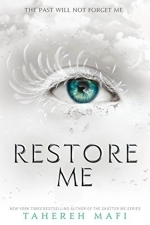
Restore Me: Shatter Me Book 4
Book
The book that all SHATTER ME fans have been waiting for is finally here. The fourth incredible...
science fiction fantasy young adult
